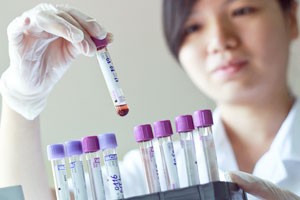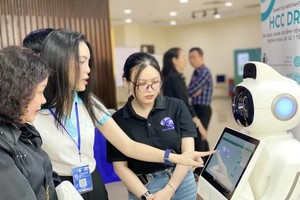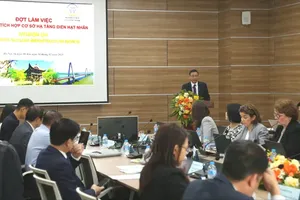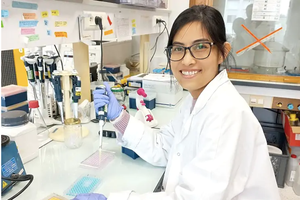Random blood samples collected from 2,500 people of the Vietnamese Kinh ethnic community, as well as from other Asian ethnic groups of China, Japan, India and Pakistan are under test for a vital global genome research project to study gene variation in humans caused by the effects of disease.

Blood samples from the Kinh ethnic community of Vietnam was collected from July 2010 to March 2011 at the Oxford University Clinical Research Unit in the Hospital for Tropical Diseases in Ho Chi Minh City.
59 single adults, 36 couples and their adult offsprings spontaneously participated in this project by donating blood samples. All personal information of the volunteers will be kept top secret except for their gender.
However only 100 blood samples were picked at random and sent to the Coriell Institute in the United States for DNA extraction.
These samples will be decoded in high technology institutes in UK, USA, China and Germany and expected to be presented worldwide as free available public database in the fourth quarter of this year.
According to doctor Sarah Dunstan, a member of the 1,000 genome project, this does not directly offer participants any benefit but is of great relevance to the whole global community and to successive generations.
A Vietnamese volunteer for the project said “After thoroughly understanding the 1,000 genome project, I realized it is very meaningful and giving 30ml of blood is not much, so I decided to take part in this project.”
Even a small per cent difference in genes amongst humans has been believed to hold valuable evidence to an individual’s susceptibility to illnesses, response to drugs and sensitivity to environmental factors.
Free and detailed information on human genetic variations will therefore help the research community around the world to understand better how the genetic variation contributes to a particular disease.
This knowledge will foster new medical and biological studies and approaches related to genetic research.
Hundreds of researchers from well-known institutes and universities around the globe are working on this project.
The sequence and alignment data of this project is available via link ftp://ftp.1000genomes.ebi.ac.uk/vol1/ftp/ and ftp://ftp-trace.ncbi.nih.gov/1000genomes/ftp/.
Information on the project has been updated on its official website; www.1000genomes.org.
























